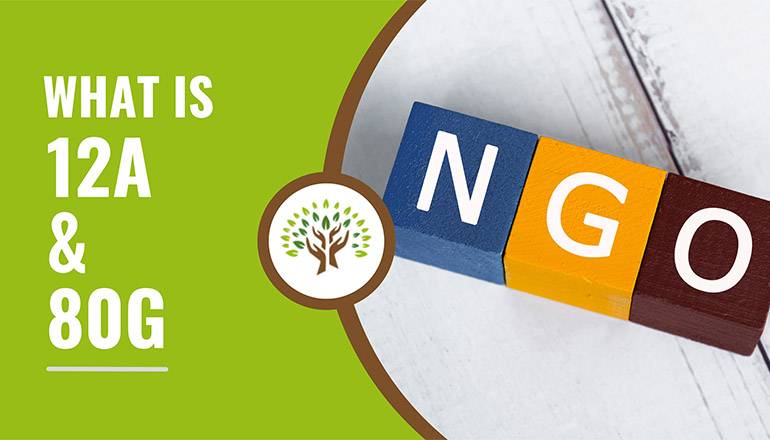By:Sakshi |
Updated on:Jun 30, 2025 |
Category:12a and 80g

12A registration is a provision under the Income Tax Act that allows nonprofit organizations to claim tax exemptions on income generated through their charitable work. This registration is issued by the Income Tax Department and is a prerequisite for availing various tax-related benefits.
To qualify for 12A registration, an organization must:
The benefits of 12A registration include:
While 12A benefits the organization, 80G registration focuses on the benefit of the donor. It allows individuals and companies to claim tax deductions on donations made to eligible institutions.
To be eligible for 80G registration, the organization must:
The benefits of 80G registration are:
Both 12A and 80G registrations are essential for nonprofits operating in India. 12A helps the organization save tax on its income, while 80G encourages more donations by offering tax benefits to the donors. Together, they create a framework that promotes charitable giving and strengthens the nonprofit ecosystem.
Q1: How can an organization apply for 12A registration?
Ans1: The organization must file Form 10A on the Income Tax Department portal with relevant documents and activity details.
Q2: Can foreign donations be claimed under 80G?
Ans2: No, foreign donations are not eligible for 80G benefits. Only domestic donors can claim tax deductions under 80G.
Q3: Does 12A registration automatically make an NGO eligible for 80G?
Ans3: No. The organization must separately apply for 80G even after receiving 12A registration.
Q4: Are there any restrictions on fund utilization under 12A and 80G?
Ans4: Yes. All funds must be used only for charitable purposes, and proper records must be maintained for compliance.
Q5: Can religious institutions apply for both 12A and 80G?
Ans5: Yes, religious institutions that also engage in charitable work can apply for both, if they meet the Income Tax Act's eligibility criteria.

I am a dedicated and detail-oriented Website Content Writer with over two years of experience in creating compelling, reader-friendly, and SEO-optimized content. My expertise lies in developing well-structured web pages, landing pages, blogs, and service descriptions that enhance user engagement and drive organic traffic.